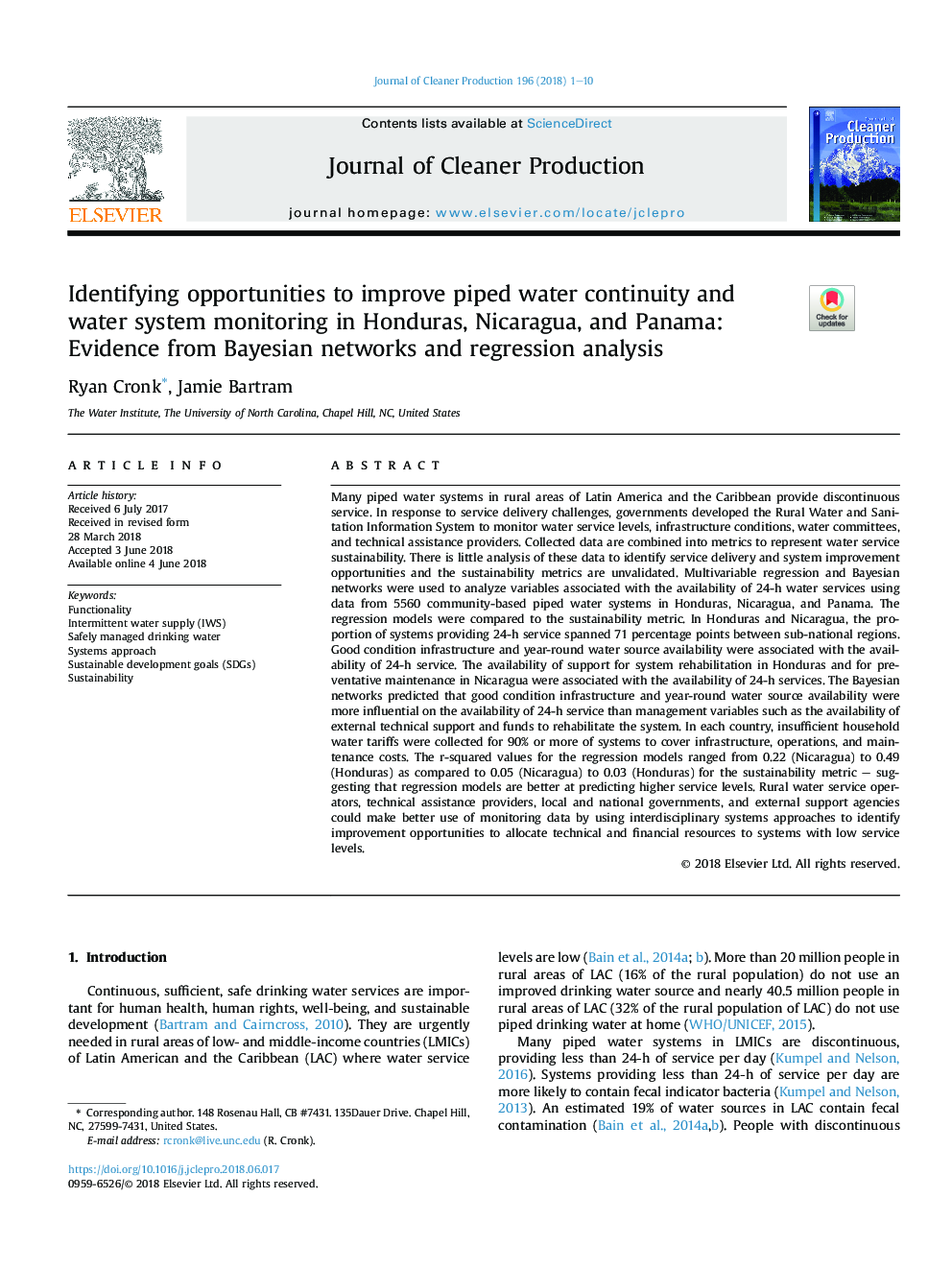| کد مقاله | کد نشریه | سال انتشار | مقاله انگلیسی | نسخه تمام متن |
|---|---|---|---|---|
| 8093703 | 1522057 | 2018 | 10 صفحه PDF | دانلود رایگان |
عنوان انگلیسی مقاله ISI
Identifying opportunities to improve piped water continuity and water system monitoring in Honduras, Nicaragua, and Panama: Evidence from Bayesian networks and regression analysis
ترجمه فارسی عنوان
شناسایی فرصت ها برای بهبود تداوم آب لوله کشی و نظارت بر سیستم آب در هندوراس، نیکاراگوئه و پاناما: شواهد از شبکه های بیزی و تحلیل رگرسیون
دانلود مقاله + سفارش ترجمه
دانلود مقاله ISI انگلیسی
رایگان برای ایرانیان
کلمات کلیدی
موضوعات مرتبط
مهندسی و علوم پایه
مهندسی انرژی
انرژی های تجدید پذیر، توسعه پایدار و محیط زیست
چکیده انگلیسی
Many piped water systems in rural areas of Latin America and the Caribbean provide discontinuous service. In response to service delivery challenges, governments developed the Rural Water and Sanitation Information System to monitor water service levels, infrastructure conditions, water committees, and technical assistance providers. Collected data are combined into metrics to represent water service sustainability. There is little analysis of these data to identify service delivery and system improvement opportunities and the sustainability metrics are unvalidated. Multivariable regression and Bayesian networks were used to analyze variables associated with the availability of 24-h water services using data from 5560 community-based piped water systems in Honduras, Nicaragua, and Panama. The regression models were compared to the sustainability metric. In Honduras and Nicaragua, the proportion of systems providing 24-h service spanned 71 percentage points between sub-national regions. Good condition infrastructure and year-round water source availability were associated with the availability of 24-h service. The availability of support for system rehabilitation in Honduras and for preventative maintenance in Nicaragua were associated with the availability of 24-h services. The Bayesian networks predicted that good condition infrastructure and year-round water source availability were more influential on the availability of 24-h service than management variables such as the availability of external technical support and funds to rehabilitate the system. In each country, insufficient household water tariffs were collected for 90% or more of systems to cover infrastructure, operations, and maintenance costs. The r-squared values for the regression models ranged from 0.22 (Nicaragua) to 0.49 (Honduras) as compared to 0.05 (Nicaragua) to 0.03 (Honduras) for the sustainability metric - suggesting that regression models are better at predicting higher service levels. Rural water service operators, technical assistance providers, local and national governments, and external support agencies could make better use of monitoring data by using interdisciplinary systems approaches to identify improvement opportunities to allocate technical and financial resources to systems with low service levels.
ناشر
Database: Elsevier - ScienceDirect (ساینس دایرکت)
Journal: Journal of Cleaner Production - Volume 196, 20 September 2018, Pages 1-10
Journal: Journal of Cleaner Production - Volume 196, 20 September 2018, Pages 1-10
نویسندگان
Ryan Cronk, Jamie Bartram,
